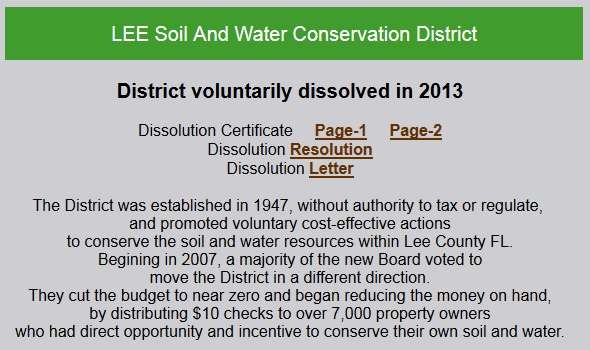Zombie Government Bodies Spread Nationally; Occasional Victories Require Difficult Budget Shot

We all know how intrusive, bloated and expensive the federal government is—the not-really-a-shutdown provided us a glimpse of just how far the beast on the Potomac has extended its tentacles into everyday life. But local government often flies under the radar, spreading its reach, hassling its subjects and outliving its usefulness while we remain largely unaware of the growing problem. It's the attack of the zombie government agencies, and victories against them are rare and hard-fought.
At Bloomberg, Tim Jones and John McCormick write:
Across the country, there are 38,266 special purpose districts, or government units distinct from cities, counties and schools, each with its own ability to raise money. Since President Ronald Reagan declared in his 1981 inaugural address that government "is not the solution to our problem -- government is the problem," their numbers have jumped 32 percent.
Among such bodies is "a mosquito abatement district in suburban Chicago that spends three-quarters of its budget on pay and benefits -- and more on pensions than insecticide. The districts have been around since the 1920s, when they were created to fight malaria." Illinois, overall, is tits-deep in these pointless but expensive local agencies, with "almost 7,000 units that tax, spend and drive up debt in a state struggling to pay off vendors and cover almost $100 billion of unfunded pension liabilities." The agencies often duplicate each other's efforts, sharing overlapping responsibilities and jursdictions—and still not accomplishing their assigned (and often archaic) tasks, while failing to do so with full staffing and spectacular costs.
Spectacular costs? The South Cook County Mosquito Abatement District spent $2.3 million last year, most on salaries, pensions and the like, with only $100,000 going to pesticide. The Wheaton Sanitary District pays its head $146,000 per year—more than Illinois' lieutenant governor, treasurer, or comptroller take home.
The special districts are almost impossible to kill, since they have entrenched defendes in the form of patronage hires and their own lobbyists, while most taxpayers don't know they exist.
These seemingly unkillable government bodies do take an occasional head shot.
In Lee County, Florida, the Lee Soil and Water Conservation District, established in 1947 as a New Deal-era effort to keep the Oklahoma dust bowl from replicating itself in…Florida? Anyway, decades later, it had been reduced to expending its budget on sprinkler inspections at a cost of $500 each. As a result, reports WINK News, "An agency in local government has abolished itself, because its directors realized: it had nothing to do. So, the Lee Soil and Water Conservation District has gone out of existence after more than 60 years."

But…There was more to it than that. More in the form of years of hard work as local libertarians worked to win a majority on the District board and to rein it in. Writing in the News-Press, one of those activists, Kim Hawk, describes the process:
It was springtime in 2004 when the federal, state and local budgets were spiraling out of control and Jack Tanner, at the tender age of 70, was looking for a way that even one person could make a difference.
He set his sights on the Lee County Soil and Water Conservation District board, got himself appointed to fill a vacancy. Come election time, he got elected and realized that after several 4-1 votes against the idea he needed help.
In the spring of 2006 Jack asked fellow libertarians Tom Clark and myself to join him and create a 3-2 majority. I was lucky to run unopposed and Tom won by a solid margin, setting the stage for the first big showdown. …
As layers of government over the years rendered the districts obsolete, they became bureaucracies in search of a mission. Many districts, including Lee's, decided their new mission was to offer "free" inspections of lawn sprinklers. No adjustments or repairs were allowed. Jack Tanner was furious when he realized the cost of each visit was $500, consuming $200,000 in taxpayer money in Lee County every year.
Jan. 11, 2007 dawned clear and cold. I was nervous and excited as I entered my first meeting and found the room full of important looking bureaucrats. The board moved quickly to the discussion of the termination of two employees and the sprinkler check-up service. Amid vehement protests and declarations of retribution we voted 3-2 to end the program.
You'll notice that victory was in 2007 and final dissolution came last month, in 2013. The years in between were spent returning money to taxpayers, successfully battling to end other sprinkler-inspection programs and fighting to have the District dissolved so nobody else could win control and restart the patronage machine. The whole process took nine years.
One down, 38,265 special purpose districts to go.


Show Comments (41)